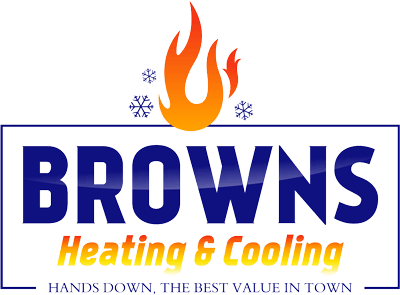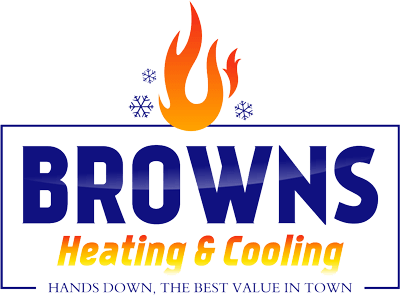Wondering where to sell used HVAC equipment? then you are at the right place.
Selling used HVAC equipment can be a daunting task, especially if you’re unsure where to start.
This comprehensive guide will provide you with the most reliable and trustworthy platforms to help you get the best value for your used heating, ventilation, and air conditioning units.
By focusing on positive sentiments and user experiences, we aim to build trust and excitement for both sellers and buyers alike.
Online Marketplaces
1. eBay
eBay is a popular global online marketplace that allows individuals and businesses to sell various items, including used HVAC equipment.
With a large user base, eBay provides you with a wide audience to potentially sell your equipment. Plus, their seller protection program helps keep your transactions safe and secure.
2. Craigslist
Craigslist is a well-known classified advertisement platform with listings for various items, including used HVAC equipment.
This local-based platform allows you to connect with potential buyers in your area, enabling easier transactions and eliminating shipping costs.
3. Facebook Marketplace
Facebook Marketplace is another excellent platform for selling used HVAC equipment.
Leveraging the power of the social media network, you can easily list your items and connect with potential buyers in your area.
Facebook also offers buyer and seller protection, ensuring a secure and trustworthy experience.
4. HVAC-specific Online Platforms
There are several HVAC-specific online platforms, such as HVAC Trader and Used AC Depot, dedicated to buying and selling used heating, ventilation, and air conditioning equipment.
These platforms provide a focused audience, increasing the likelihood of selling your items quickly and at a fair price.
Local Options
1. HVAC Contractors and Dealers
Local HVAC contractors and dealers may be interested in purchasing used HVAC equipment for their inventory or refurbishing and reselling.
Reach out to these professionals in your area, as they may offer competitive prices, especially if the equipment is still in good working condition.
2. Scrap Yards and Recycling Centers
Scrap yards and recycling centers are viable options for selling used HVAC equipment that may no longer be functional or is in poor condition.
These facilities typically pay based on the weight of the metal, allowing you to recoup some of the costs associated with your equipment.
3. Trade-in Programs
Some HVAC manufacturers and dealers offer trade-in programs that allow you to trade in your used equipment for a discount on a new unit.
While this option may not provide the highest cash value for your used equipment, it could help reduce the overall cost of upgrading your system.
Preparing Your Used HVAC Equipment for Sale
1. Clean and Inspect
Before listing your used HVAC equipment for sale, ensure that it is clean and free of dust and debris.
Inspect the unit for any visible damages, and consider having a professional assess its condition to provide potential buyers with accurate information.
2. Document the Equipment’s Details
Create a detailed description of your used HVAC equipment, including the make, model, age, and any recent maintenance or repairs.
Providing this information to potential buyers demonstrates transparency and trustworthiness, increasing the likelihood of a successful sale.
3. Take High-Quality Photos
A picture is worth a thousand words, and having high-quality photos of your used HVAC equipment can significantly impact a buyer’s decision.
Ensure that the images are clear, well-lit, and showcase the equipment from various angles.
Including photos of any labels or identifying information, such as serial numbers or model numbers, can also help build trust with potential buyers.
4. Set a Competitive Price
Research the current market value of your used HVAC equipment to determine a competitive price.
You can browse similar listings on online marketplaces and HVAC-specific platforms to gauge the average selling price.
Remember to factor in the equipment’s age, condition, and any additional features or accessories when setting your price.
5. Be Honest and Transparent
When selling used HVAC equipment, honesty, and transparency are crucial. Disclose any known issues or defects and provide accurate information about the item’s history and condition.
Being upfront with potential buyers can help build trust and prevent disputes or negative reviews later on.
Closing the Deal
1. Communicate with Potential Buyers
Prompt and professional communication with potential buyers can positively impact your selling experience.
Be prepared to answer any questions and provide additional information about your used HVAC equipment to help potential buyers make informed decisions.
2. Organize Safe Payment and Shipping Methods
When selling your used HVAC equipment, ensure that you have a secure payment method in place, such as PayPal or a platform-specific payment system.
If you’re shipping the equipment, provide accurate shipping costs and utilize a reliable carrier. If selling locally, arrange a safe location for pick-up and consider using a cashless payment method to minimize risks.
3. After-Sale Support
Offering after-sales support, such as helping the buyer troubleshoot any issues or providing advice on installation and maintenance, can enhance your reputation as a trustworthy and reliable seller.
This approach can lead to positive reviews, repeat business, and referrals.
In conclusion, selling used HVAC equipment can be a rewarding experience if you utilize the right platforms and follow best practices to ensure a trustworthy and positive experience for both you and the buyer.
By carefully selecting the appropriate marketplace, properly preparing your equipment for sale, and providing excellent customer service, you can successfully sell your used HVAC equipment and create a win-win situation for all parties involved.
Frequently Asked Questions (FAQs):
Now you have the answer to where to sell used HVAC equipment, the following are the most frequently asked questions.
What factors should I consider when pricing my used HVAC equipment?
When pricing your used HVAC equipment, take into account its age, brand, model, condition, and any additional features or accessories. Research the current market value by browsing similar listings on online marketplaces and HVAC-specific platforms to determine a competitive price. Additionally, consider any recent maintenance or repairs that may have added value to the unit.
How can I increase the chances of selling my used HVAC equipment quickly?
To increase your chances of selling used HVAC equipment quickly, ensure that the unit is clean and in good working condition. Provide a detailed description, including make, model, age, and maintenance history, and take high-quality photos from various angles. Setting a competitive price and being honest about the equipment’s condition can also attract potential buyers.
How do I determine if my used HVAC equipment is still functional and safe to sell?
To determine if your used HVAC equipment is functional and safe to sell, inspect the unit for any visible damages, such as leaks or cracks, and test its performance. It’s also advisable to have a professional assess the equipment’s condition to ensure it’s safe for use. Providing an accurate and transparent description of the equipment’s condition is crucial when listing it for sale.
Are there any legal or regulatory considerations when selling used HVAC equipment?
Depending on your location, there may be legal or regulatory requirements when selling used HVAC equipment, such as proper disposal of refrigerants, according to the Environmental Protection Agency (EPA) regulations in the United States. Check your local and national laws to ensure compliance, and consider consulting with an HVAC professional or legal expert if you’re unsure about the requirements.
Can I sell non-functional or damaged HVAC equipment, and where can I do so?
Yes, you can sell non-functional or damaged HVAC equipment, but you must disclose the condition when listing the item. Scrap yards and recycling centers are suitable options for selling equipment that’s no longer functional, as they typically pay based on the weight of the metal. Be sure to check for any environmental regulations regarding the proper disposal of non-functional HVAC units.
Ramod Brown, the founder of Browns Heating & Cooling, brings a wealth of HVAC experience to Chicago and its neighboring areas. With deep expertise in heating and cooling services, he simplifies complex HVAC concepts through his insightful blog posts. Whether you’re seeking ways to enhance HVAC efficiency, troubleshoot issues, or stay informed about the latest trends, the Browns Heating & Cooling blog is your go-to resource for practical insights that will help you maintain a comfortable and efficient environment for your space.

